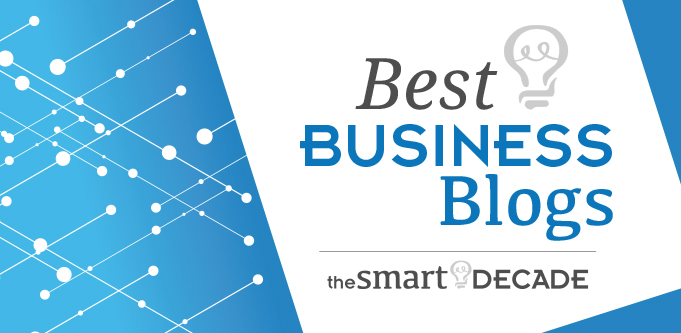Beyond Google Book Giveaway
Welcome back Rankers! This week I’ll explore how the evolving world of AI is reshaping the way we search and interact with the web, focusing on major developments from tech giants like Google and Microsoft. I’ll also share insights from my upcoming book Beyond Google: Mastering Search in a World of AI Assistants, discussing how AI assistants are transforming search, online shopping, and user experiences. You’ll also get a behind-the-scenes look at the creation of an AI-cloned audiobook and practical predictions about the future of search technology. Join me at my webinar, Thursday October 31st at 2pm AEDST and grab yourself a free copy of the book!
What I Learned
- How Google’s search experience has shifted with the introduction of AI-powered shopping.
- The rise of “zero-click” results and what they mean for search behaviour.
- The impact of speed on user experience and its critical importance for web performance.
- The use of AI to clone an author’s voice for audiobook production.
Transcript
Beyond Google: Mastering Search in a World of AI Assistants
Hey, welcome back, Rankers! How are you going? It’s been a big week for me. I’m finishing off my book—not reading it but writing it! Yes, that’s right. It’s called Beyond Google: Mastering Search in a World of AI Assistants, and I’ve written it because the world is changing, and it’s changing fast, as we’ve been discussing all year.
I’m launching it at my webinar next Thursday, 2pm Australian Eastern Daylight Savings Time—31st of October, to be exact. If you attend, you’ll get a free copy of the book. Just click the QR code during the webinar to claim your copy or wait for the post-webinar email where I’ll include a download link. A lot of the concepts in the book are things we’ve talked about this year and writing it has given me time to sit down and take stock of where we’ve come from and where we’re heading.
Predictions Coming True: The Rise of AI Assistants
When I started writing this eight weeks ago, many things I predicted have already happened! This is why I’ll likely revise the book every six months. One prediction I made is the rise of “universal agents,” and now Microsoft is already hinting at this. I dive more into that in the book.
Google has also been a major topic of discussion this year. I’ve been wondering about their AI-powered shopping assistant. While they haven’t fully launched it yet, last week they did announce a new AI-driven shopping experience. It’s personalised based on your likes and dislikes, but when we tried it in the office, we all had pretty similar results—so maybe it’s not fully personalised yet. Perhaps we need to make a purchase first for the full experience. I thought it would use search history, but I probably switched that off a while ago.
Audiobook: An AI Clone of My Voice
One of the most exciting things about the book is that I’ve been using AI to clone my voice! Thanks to ElevenLabs, I’ve created an audiobook that will be released alongside the print and e-book versions. It’s incredible—AI is transforming the publishing process. I’ll give you a sneak peek at the end of this video.
It took me about three hours to get the voice clone working properly. If you sit down and read the book, it’s about a three-and-a-half-hour read, and the audiobook is just as long. Recording in a studio would have taken a full day, but I managed to do it from my wardrobe with this very microphone for soundproofing.
Join the Webinar and Grab Your Free Copy
If you’re interested, attend the webinar, check out Google’s latest announcements, and see if you notice anything different from what we’ve been seeing. And don’t forget to like, share, and subscribe. I hope to see you next week at the webinar, where you’ll get a free copy of the book! Thanks very much and see you then.Top of Form
To register for the free webinar, click here: https://stewartmedia.com.au/webinar/
Below is an excerpt from the book:
A Deep Dive Into Google Search Behaviour
Let’s talk about the most common type of search. When Google launched their Chrome browser, they made a significant change that speaks volumes about how they view search. They transformed the address bar into the “OmniBox.” You don’t need to type out a full web address anymore—just type anything, and you’ll get Google search results.
This shift is fundamental because it changes how we interact with the web. In fact, guess what the most searched term in the world is? It’s not “news” or “weather,” but “Google” itself! Surprising, right? Google Trends tracks all searches made in the OmniBox, and this is how we can measure brand popularity.
The Power of Zero-Click Results
Informational searches, like those for news or weather, often result in what we call “zero-click results.” Google now provides the answers directly in the search results page without needing you to click through to another site. For example, when you search for the weather, Google delivers the forecast right in the results, tailored to your location.
Over the years, Google has expanded these zero-click results across various categories—whether you’re searching for hotel rooms, flights, song lyrics, or other data. This strategy is all about delivering faster, more efficient results to improve user experience.
The Impact of Speed on User Experience
Google has known for years that speed matters. Back in 2004, they ran a study comparing pages with 100 blue links versus the standard 10. Even though the 100-link pages took only slightly longer to load, they found that a delay of just 500 milliseconds—a mere half second—caused a 20% drop in conversion rates! Their users were quickly frustrated by even the smallest delay.
In 2016, Ericsson Consumer Lab found that mobile users experiencing web delays had stress levels comparable to watching a horror movie or solving a tough math problem. That’s how important speed is to users, and tools like ChatGPT are now eating into Google’s market because people just don’t have the patience anymore.
By 2012, smartphones like iPhones were everywhere, but we were still on 3G networks—painfully slow by today’s standards. Now, with most internet traffic coming from mobile devices, speed has only become more crucial. The name of the game is getting information to users as quickly as possible, whether through AI, search optimisation, or otherwise.

Jim’s been here for a while, you know who he is.


